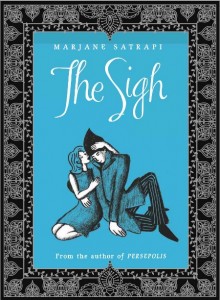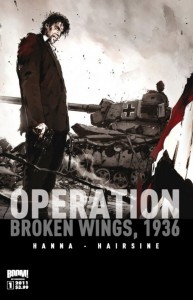in San Diego is where I’ll be starting tomorrow evening, and on through Sunday afternoon. PSYCHED! Grab me and say hi! BONUS: on Saturday night, I will be the one in the Billy Quizboy costume.
World Fantasy Con 2011
October 26th, 2011 § 0 comments § permalink
Best European Fiction 2012
October 25th, 2011 § 0 comments § permalink
Recently, I got my comp copy of Dalkey’s Best European Fiction 2012 volume, with my translation of Belgian Bernard Quiriny’s “Rara Avis.” Horror fans take note: this work, at once genteel and macabre, makes an argument about the freakish nature of all artistic creation. According to Amazon, the book drops November 11.
Denis Johnson’s Fiskadoro, Part 2: 2011
October 20th, 2011 § 0 comments § permalink
So here’s the one-pager on Fiskadoro I did for Boyle’s grad fiction workshop this fall. What happened? Did I get dumber, or just more honest (and are they always opposites)? More nitpicky and literal-minded? Less willing to do work, and more wanting to be spoon-fed? In the meantime, I met a man who insisted he knew who the narrator was, and wouldn’t tell me, merely exhorting me to read it again, more closely. I’d like to think I’m always moving forward, but it seems I was definitely more adept at throwing words at things back then, even or especially when I didn’t feel actually it. Be kinder.
When I first read Fiskadoro fourteen years ago, I was bewildered. There was sense I could make of it, but it was partial; no reading encompassed all the available material. I clung to sentences that gleamed from the text, trying to piece them together into some consistent philosophy. I identified strongly with Manager Cheung, his frustrated historical passion, his human frailty, while Fiskadoro seemed remote.
The book now seems somewhat diminished to me: how could I ever have gotten lost in that? Immersive capability is the price you pay for being able to hold a thing whole in your mind. I can now read the death of Fiskadoro’s father as a step ticked off the checklist of Campbell’s heroic journey used as a plot skeleton, instead of the accident it is almost naturalistically presented as. While I know now that the vagueness with which Fiskadoro’s initiation is described is intentional (and within the world of the story, explained by drugs), it feels abstract; Fiskadoro as a character feels like a cipher. All descriptions of the past have an emotional immediacy and the advantage of specificity; all descriptions of ritual and dream shade into allegory. The two feel like odd bedfellows, as does the juxtaposition of nuclear apocalypse and the evacuation of Saigon: they never really dovetail. » Read the rest of this entry «
Denis Johnson’s Fiskadoro, Part 1: 1997
October 19th, 2011 § 0 comments § permalink
This was a one-pager written for T.C. Boyle’s undergrad fiction workshop. I recently read this book again for his grad fiction workshop, fourteen years later, and while noodling around online realized there still wasn’t much coverage of what I suppose now qualifies as a cult classic, even if only because Denis Johnson has become a name more widely known. So, for what it’s worth: something another me wrote a long time ago. Be kind.
From the beginning the tone of the tale is established, prefaced by a voice at once worshipful and historical, incantatory and conjuring. It is a raconteur’s tale, a pastime (“Can we help it if…we like to tell stories that want, as their holiest purpose, to excite us with pictures of danger and chaos?â€), that disdains the drama of conflict for the drama of strangeness—the drama of steeping the reader in an alien, impossible world and in the heightened, minute awarenesses that accompany such steeping, such discovery. In this Johnson’s prose does all the work, a detailed reportage; Fiskadoro has the structure of a chronicle—thus the passive nature of the characters, stunted by memory, defect, or the afterstate of the world, survivors and only that, semi-literate and uncomprehending, who are all acted upon; the gradually unfolding lineage, exhaustively described, of cumulatively enriching events. In both Fiskadoro and Jesus’ Son, Johnson proves himself a master of conveying the lucid solipsistic event, circumscribing a dream, a nothingness, or a state of being past consciousness in order to illustrate its borders, to asecrtain its shape through its edges. Whereas in his stories he achieves this through a series of spare, rhapsodic non sequiturs, in Fiskadoro he employs a dense exterior voice. He gives voice to pre-verbal, post-verbal, even non-verbal moments, voiceless moments beyond cognitive process, feeling-states. His characters are all prey to limbos that operate by their own incontrovertible inner logics, pose their own questions and contradict them, and resolve themselves without trace or echo. A dream of several days’ duration, told in detail, disappears into a moment before forgetfulness. Fiskadoro knows Sammy only by the name of ________. Grandmother’s past, present, and imagination belong to an inextricable whole; several times, in the story of her endless days on the ocean, paragraphs chase their long final sentences in dwindling circles before swallowing themselves. “You touch the people and they dissolve. There is nothing left but you. And you will not remember.â€Â The novel, like a fractal, finally replicates the structure of its paragraphs and chapters by being similarly hermetic, self-convinced and self-contained, obscure, cryptic, and impenetrable, opaque and perfectly stated, like a riddle, like the black monolith from 2001. » Read the rest of this entry «
I’ll Be Reading
October 10th, 2011 § 0 comments § permalink
my fiction this weekend at the &NOW Festival of New Writing, a biennial festival of experimental literature. This year’s theme is Tomorrowland Forever! The place: UC San Diego, October 13-15. More info on the festival and a full program of events is available at the website.
&NOW is a festival of fiction, poetry, and staged play readings; literary rituals, performance pieces (digital, sound, and otherwise), electronic and multimedia projects; and intergenre literary work of all kinds, including criti-fictional presentations and creatively critical papers. We particularly encourage pieces that promote linguistic and genre transgressions, along with literary artworks that promote interdisciplinary explorations and conversations with past, present, or future literary concerns and movements.
On the morning of Friday, October 14th in the theater of Atkinson Hall, I’m scheduled to read as part of the following panel:
*FRI. 11:30 AM-12:45 PM*
Breaking Stories – Corinne Goria with Russell Quinn
A narrative presented in the style of The New York Times online, “Breaking Stories†explores how rapid changes in digital media culture are shaping, and shaped by, literature.
The Ancient Documentaries of Southside Park – Stephanie Sauer, Ella Diaz
Join world renowned archeologist La Stef (Stephanie Sauer) and her assistant Miss Ella (Ella Diaz, PhD) as they unveil the sacred scrolls of the Royal Chicano Air Force, which document Sacramento’s first traditional Mesoamerican ceremonies.
Bioperversity – David Buuck
An art exhibit from the future that looks back at our present responses to ecological crisis through visual art and experimental writing.
Summer Work
October 2nd, 2011 § 0 comments § permalink
has started coming out (and paying off). Archaia, to the surprise of many, including The Comics Reporter, has announced the November release of Marjane Satrapi’s illustrated book The Sigh, a sweet and somewhat pscyhoanalytical fairy tale mash-up. This was a fun translation for me, and the first time I’ve worked on Satrapi.
Thanks to Trevor Hairsine’s art, The Comics Reporter and CBR’s Robot 6 picked up on another book I translated in August, The Kaiser’s Legacy. Written by Hérik Hanna, the book is one of several in a Delcourt collection called The Heist: unrelated one-shots that all revolve around heists. BOOM! Studios has retitled the book Broken Wings for its American release.
These are only the first two of many. I was, with the help of my significant other, a veritable factory this summer, and churned out 14 graphic novel translations. Updates will follow.




